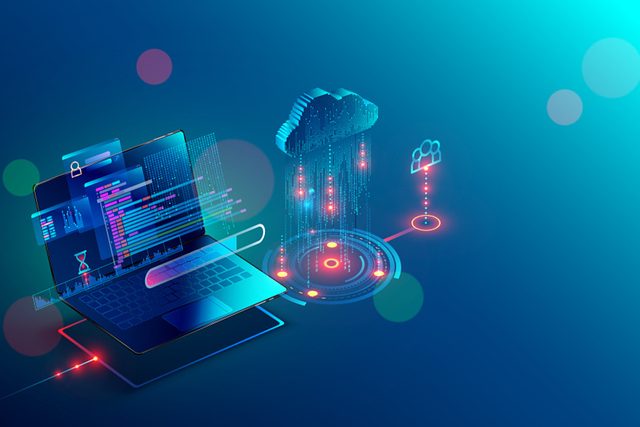In today's digital age, understanding the intricate relationship between business and cybersecurity is vital for restaurants. Integration of AI data analytics tools revolutionizes trend prediction and threat protection by generating insights from vast data, enabling informed decisions, and adapting quickly to market changes. AI-driven cybersecurity solutions leverage machine learning to detect anomalies, predict attacks, and protect sensitive data swiftly, fostering customer trust and compliance with privacy regulations. Embracing AI technologies is a strategic imperative for restaurant success in this dynamic landscape, fortifying their cybersecurity posture through real-time insights and proactive threat defense.
In today’s digital age, understanding business and cybersecurity is paramount. As AI revolutionizes various industries, its impact on enhancing cybersecurity measures in businesses, especially restaurants, cannot be overstated. This article explores the intersection of these two critical areas. We discuss how AI and data analytics tools are transforming restaurant cybersecurity trends, offering novel solutions to protect sensitive customer and operational data. By leveraging AI, restaurants can fortify their defenses against cyber threats and maintain customer trust.
- Understanding Business and Cybersecurity in the Digital Age
- The Role of AI in Enhancing Cybersecurity Measures
- Leveraging Data Analytics Tools for Restaurant Cybersecurity Trends
Understanding Business and Cybersecurity in the Digital Age

In today’s digital age, understanding the intricate relationship between business and cybersecurity is paramount for any organization, especially in dynamic sectors like restaurants. The rise of AI data analytics tools has not only revolutionized how businesses predict market trends, such as consumer preferences in food choices and dining habits, but also transformed the way they protect their operations from cyber threats. With vast amounts of data generated daily, these tools enable restaurants to identify patterns, make informed decisions, and adapt quickly to changing market dynamics.
At the same time, the integration of AI into cybersecurity solutions offers a robust defense against evolving digital risks. By leveraging machine learning algorithms, these systems can detect anomalies, predict potential attacks, and respond swiftly to protect sensitive data, ensuring restaurant chains maintain customer trust and compliance with data privacy regulations. In this landscape, where business success and security are deeply intertwined, embracing AI technologies is not just an option but a strategic necessity.
The Role of AI in Enhancing Cybersecurity Measures

Artificial Intelligence (AI) is transforming cybersecurity, offering powerful tools to fortify defenses against evolving threats. By leveraging machine learning algorithms and advanced data analytics, AI systems can detect anomalies, predict potential attacks, and respond swiftly to security incidents. This proactive approach is particularly valuable in identifying zero-day vulnerabilities and targeted cyberattacks that traditional signature-based methods might miss.
AI enhances cybersecurity by analyzing vast volumes of network traffic, user behavior patterns, and system logs, uncovering hidden threats. These AI data analytics tools can adapt and learn from new attack vectors, ensuring continuous improvement in threat detection and mitigation. With AI, organizations can streamline their security operations, reduce response times, and make more informed decisions, ultimately strengthening their overall cybersecurity posture.
Leveraging Data Analytics Tools for Restaurant Cybersecurity Trends

In the realm of modern hospitality, restaurants are increasingly leveraging AI data analytics tools to unearth critical cybersecurity trends and protect their operations. By sifting through vast amounts of data generated daily, these advanced tools can identify patterns indicative of potential threats, such as unauthorized access attempts or malicious software activities. This proactive approach allows restaurant owners to fortify their digital defenses before vulnerabilities can be exploited.
AI analytics can also predict evolving cyber-attack vectors by analyzing global trends and adapting to new threat landscapes. This ensures that restaurants remain one step ahead of cybercriminals. Moreover, these tools streamline incident response by providing real-time insights during breaches, enabling quicker containment and recovery measures. The integration of AI data analytics tools into restaurant cybersecurity strategies is a game-changer, offering enhanced protection against an ever-adaptable digital threat environment.
In today’s digital age, understanding the intricate relationship between business operations and cybersecurity is paramount. The integration of AI has emerged as a game-changer in enhancing security measures, particularly within the realm of data analytics. By leveraging AI and data analytics tools, such as those examining emerging trends in the restaurant industry, businesses can navigate the complex landscape of online threats. This approach enables organizations to proactively identify vulnerabilities, fostering a robust cybersecurity strategy that protects sensitive information and ensures smooth digital operations.
